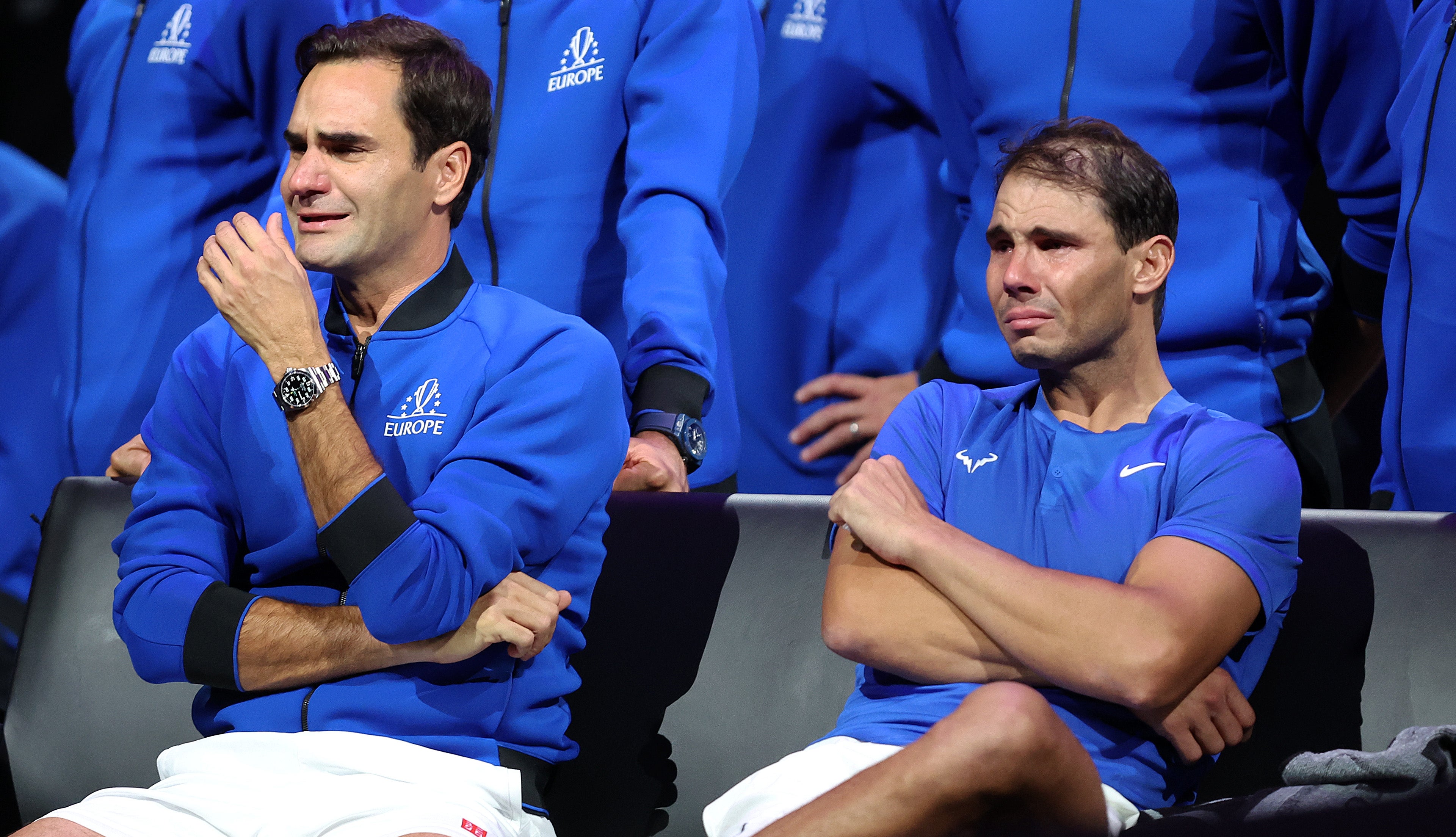From the sleeveless teenage superstar who was virtually unbeatable for three months every spring to the all-court genius who defied the limits of his body to conquer the lot, it’s been quite the ride for Rafael Nadal in professional tennis.
A formal farewell – beyond the ‘will he, won’t he?’ of the summer – has been in the pipeline for some time. On Thursday, aged 38, Nadal confirmed that he will call time on his astonishing career at the end of the season, acknowledging “a difficult last two years” playing “with limitations.” Nadal will bow out after the Davis Cup Finals in Malaga next month.
As he notes in his emotional five-minute retirement video, he will finish his career 20 years after he first burst onto the global stage, beating Andy Roddick in the Davis Cup final in Seville on his beloved clay. Representing his country has always been an under-emphasised aspect of Nadal’s career, with two Olympic gold medals and five Davis Cup crowns to his name. Now, alongside the potential heir to his throne, Carlos Alcaraz, he will have one final shot at a sixth Davis Cup title.
His numbers are astonishing. The second member of the “Big Three” to hang up his racket, Nadal is second in the all-time list of men’s singles Grand Slams – ahead of Roger Federer on 20 but behind Novak Djokovic on 24. He spent 209 weeks at world number one, claimed 91 tour titles and his legacy at the French Open will stand surely forever, with 14 Roland Garros titles. He lost just four times in tennis’ second major of the season, winning 112 matches.
But beyond the devilishly effective forehand, lightning-quick speed around the court and fiercely strong mentality, what really stood Nadal out from the crowd (especially at the beginning of his career) was his eccentric approach to the game of tennis. You know what I’m talking about? The superstitions. The fidgetiness. And, of course, those immaculately placed water bottles. The ball-boy in Australia in 2015 did his best.
Contrary to popular belief, when Nadal first entered the professional fray as a 15-year-old in his hometown of Mallorca, his apparel was traditional. It was only for the 2005 season, aged 19, that he modelled his signature look: a sleeveless Nike shirt, with three-quarter length capri pants, and a bandana.
By this point, his behaviours were becoming well-known. Nadal would always walk on court with a single racket in his hand, ready for battle. He would make his opponent wait for the coin toss at the net, before sprinting to the baseline ahead of the pre-match warm-up. And, during the match, he would always undergo the same pre-serve routine: a sweep of the baseline, a swipe of the brow, a pinch of the shorts.
It was a unique approach to the game which became iconic, just as his fierce rivalry with Federer started to emerge. Many of his loyal fans were shocked when, at the start of the 2009 season at the request of Nike, he ditched the trademark clothing look for traditional sleeves and shorts. Turns out they wanted a more routine look for the world’s top men’s tennis player but it did not swerve Nadal off-piste: he won his first Australian Open a month later.


At times, his slow speed of play made him unpopular in the locker room. It is not lost on some the irony that Nadal has called time on his career this week, with the shot-clock in full focus with time violations aplenty at the Shanghai Masters. For the record, the Spaniard has always defended his record here, insisting he sweats a lot and so has to take the time to locate his towel at the back of the court. While he has received time violations, he has never received a code violation for smashing the racket.
By and large, his on-court behaviour has been impeccable. Not even Federer – who Nadal cried alongside after the Swiss played his final match alongside him two years ago – escaped his career without a broken racket. But the great contrast of this indomitable sporting maestro was the intensity of Nadal, the athlete, compared to the humility and gracefulness of Nadal, the person.
His warmth in post-match interviews, even his patience with borderline offensive questions in the press room, were a sign of the man beyond the racket. From a point of such high concentration, he could switch to someone who was genuinely quite funny. His broken English, at times, has made for memorable on-court interactions.


Forever a gentleman, he always allows his opponent to cross the net before him prior to a changeover and his shock at accidentally hitting a ball-girl in Australia a few years back triggered an apologetic kiss-on-the-cheek.
Speaking in-depth about his persona off-court, Nadal said in 2008: “It is important to have true inner humility, not false humility, accepting that it’s not always good, bad moments are better tolerated. People sometimes exaggerate this business of humility.
“It’s simply a question of knowing who you are, where you are, and that the world will continue exactly as it is without you.”
And so we reach the present day, and a time soon when the tennis world will indeed continue without Nadal. His legacy will be long-lasting, but not just in the record books. More so, in fact, in the example he set. His never-say-die attitude. And his insistence on doing it all his way.









![Best Weight Loss Supplements [2022-23] New Reports!](https://technologytangle.com/wp-content/uploads/2022/12/p1-1170962-1670840878.png)




